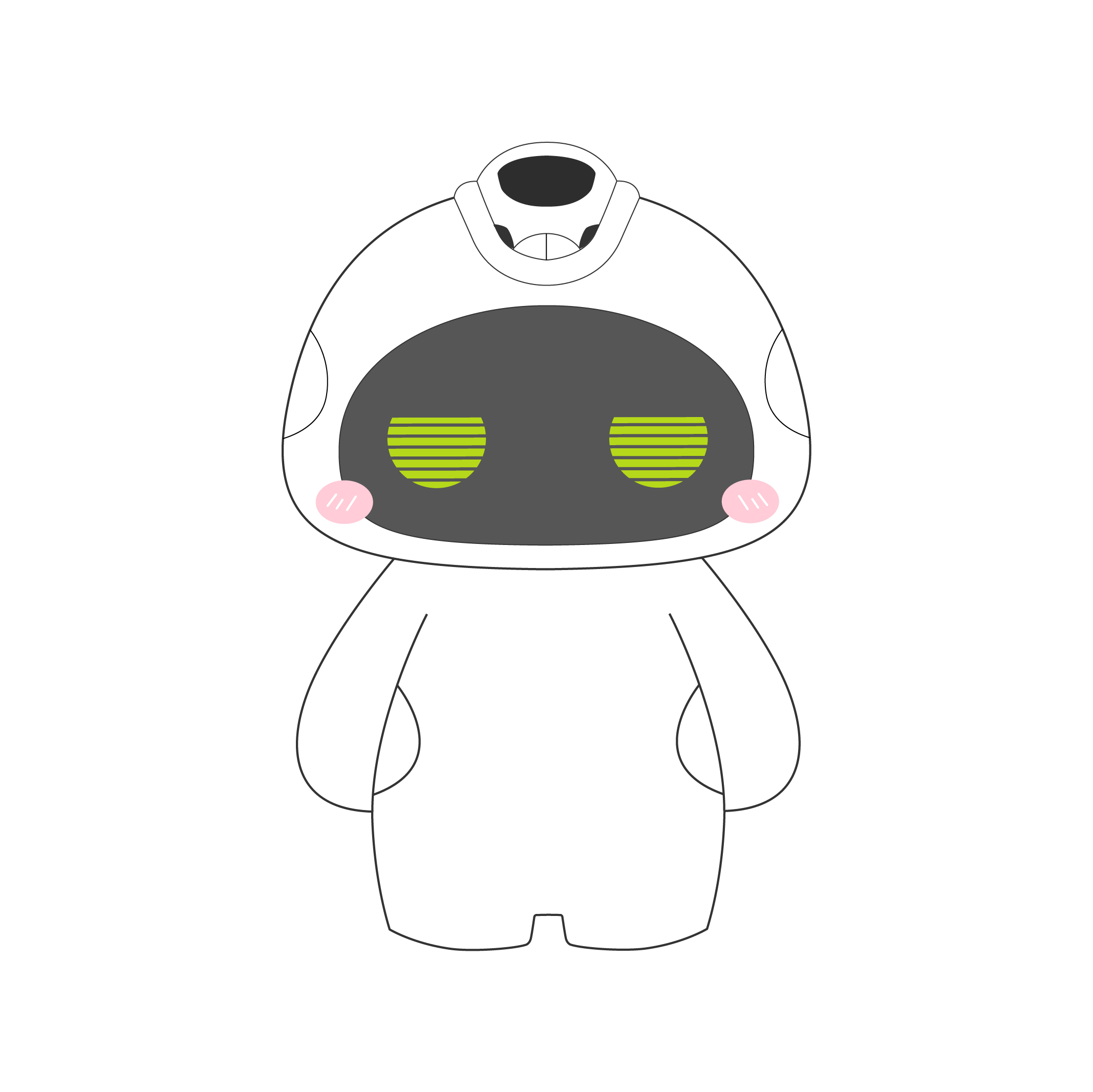The link between inequality and anxiety
inequality; in- 不 , 无 + -equ- 均 , 等 + -al 形容词词尾 + -ity 名词词尾 → 不平等。
anxiety; anx- 苦恼+ ie 与......相关 → 与苦恼相关的 → 焦虑、担心、渴望。
I'm sure you've noticed the difference between posed photographs and pictures taken of people who are unaware of the camera. The pictures where people are unaware -- they often look like this. This picture was taken in central London. People in the prime of life, and yet everyone there looks haggard, depressed, anxious. Some of them look quite angry. Not a smile to be seen. And yet, if you look at pictures of people posed, they put their arms around each other, as in this picture. They smile. That's, I think, how we'd like to be seen, how we think we should be together.
我相信你已经注意到了摆拍和没意识到有相机在拍的人的照片之间的区别。 趁人不注意的抓拍, 它们通常是这样的。 这张照片是在伦敦市中心拍的。 人们正值壮年, 但每个人看起来都很憔悴、沮丧、焦虑。 有些人看起来很生气。 没有一丝笑容。 但是,如果你看人们摆拍的照片, 就像这张照片一样, 他们勾肩搭背。 他们笑。 我想,这就是我们希望别人看到的, 这就应该是我们在一起的样子。
prime; prim- 首要 + -e → 首要的,主要的;第一流的,最好的;全盛时期;盛年,壮年时期。
haggard; 古英语 haga, 树篱,篱笆,围栏 → 可能来自古法语 faulcon hagard, 野鹰,被抓获的猎鹰 → 因野鹰的天性狂野,桀骜不驯,被抓获后常绝食而亡 → 因此引申词义消瘦的 → 后用为形容人疲惫的 憔悴的。
depress; de- 向下 + -press- 压 → 使抑郁,沮丧。
anxious; anx-苦恼 → 来自 anger 古义,焦急。字母 g, x 音变 → 焦急的。
Unfortunately, the data tells a different story. In the UK, surveys have shown that 74 percent of adults have felt so stressed or overwhelmed and unable to cope, 32 percent have had suicidal thoughts, 16 percent have actually self-harmed. In the USA, the picture's very similar: 79 percent felt stressed every day, and almost 60 percent have felt paralyzed by stress. When there are new figures that come out in the media showing levels of stress, depression, self-harm, drug abuse, eating disorders, what's the response? It's simply to demand more services, more psychotherapists, more psychologists, more psychiatrists. It's as if a large majority of the population were being seriously injured and instead of finding out what’s going wrong, we simply want more surgeons to stitch them up.
不幸的是,数据告诉了我们 一个不同的故事。 在英国,调查显示, 74% 的成年人感到压力过大或 不堪重负,无法应对, 32% 的人有自杀想法, 16% 的人有过自残。 在美国,情况非常相似: 79% 的人每天都感到压力, 近 60% 的人压力大到麻木。 当媒体上出现新的数据展示压力、抑郁、自残、 药物滥用、饮食失调的程度时, 人们会有什么反应? 人们只是需要更多的服务、 更多的心理治疗师、更多的心理学家、更多的精神科医生。 这就好像受了重伤的时候, 大多数人都只是想让更多的外科医生把他们缝起来, 而不是找出问题所在。
cope; PIE * skel, 砍,劈 → 词义由击,打到对付,处理。
suicidal; suicide, 自杀, -al, 形容词后缀 → 有自杀倾向的。
self-harmed; harm:伤害,损害 → 自残。
paralyze; paraly ( sis ) + -yze (重复的 y 去掉)动词词尾 → 使瘫痪,使麻痹,使丧失作用。
figure; fig- 制造 , 塑造 + -ure 名词词尾 → 由揉捏引申多种词义 → 数字,雕像,身段,体型,人物;图形,数字(符号) ;文中翻译为数据。
abuse; ab (离开)+ use (使用) → 偏离正轨的使用 → 滥用 → 弊端、陋习;滥用语言或武力 → 虐待、辱骂。
response; re- 回 , 向后 + -spons- 允诺 , 约定 + -e → 返回的允诺 → 回答,回音;响应,反应。
psychotherapist; psycho-精神 心理 + -therap- 治疗 + -ist 从事某种职业的人 → 心理治疗师。
psychologist; psycho-精神 心理 + log ( logy ,学科)+ ist (专业人士、从事某种职业的人) → 心理学家。
psychiatrist;psycho-精神 心理 + iatry, 治疗+ ist (专业人士、从事某种职业的人) → psychiatry 精神病学 → psychiatrist 精神病医生。
majority; major, 主要的, -ity, 名词后缀 → 大多数。
injure; in-, 不,非, -jur, 法律,公正 → 即审判不公 → 引申词义伤害。
stitch; 来自 PIE * steig, 刺,插 → 引申词义缝,针脚等。
The crucial question we must ask is: Why is this happening? Why even in rich countries? I'm an epidemiologist, which means I've spent my career doing research on the causes of health and illness in populations. And I want to show you that inequality is a really powerful cause of higher levels of anxiety and mental distress, unhappiness, depression. I'd like you to cast your minds back to when you've felt anxious, embarrassed, nervous in front of other people, the social exposure, maybe when you're making a speech or going to a party where you don't know anyone. But all sorts of situations where we face the threat of being seen negatively cause these sorts of emotions.
关键问题是: 为什么会发生这种情况? 即使是在富裕国家? 我是一名流行病学家, 这意味着我的职业生涯一直在研究人群健康和疾病的原因。 我想告诉你们,不平等是导致更大程度的焦虑、精神痛苦、 不快乐、抑郁的重要来源。 我希望你们回想一下, 当你们在别人面前感到焦虑、 尴尬、紧张的时候, 那些社交场合的接触, 也许是当你在演讲或去一个你不认识在场任何人的派对的时候。 但是,当我们面临被消极看待的威胁时, 就会产生这些情绪。
crucial; cruc- 十字 + -ial 形容词词尾 , 性质 → 处于十字路口的 → 关键性的,至关紧要的,(医)十字形的。
epidemiologist; epi- 在…之间 + -dem- 人民 + -io- + -logist …学家 → 研究流行于人群的学家→ 流行病学家。
distress; dis-, 分开 + -str, 拉,拉紧 → 即拉紧,紧张,忧虑,悲伤;mental distress 文中翻译为精神痛苦。
cast; 核心含义很简单,就是“扔、投掷” → 然而从它的核心含义出发衍生出了大量外围的含义,如“浇铸”(把融化的铁水“扔”到模具里)、“钓鱼”(把钓钩“扔”出去)、“计算、加”(扔石子来计算)、“演员阵容”(把演员“扔”到舞台上)。
embarrass; em- 入 , 向内 + -barr- 栅栏 , 障碍 → 想象你前后方的道路都被横木封死,你进退两难,便处于“尴尬”境地了 → 使尴尬,使窘迫,使为难。
nervous; nerv- 神经 + -ous 形容词词尾 → 紧张的,神经质的,神经紧张的。
exposure; ex- 向外 + -pos- 放置 + -ure → 显露,暴晒;揭露,曝光;受到...影响;social exposure 翻译为 社交场合的接触。
sort; 种类,类别,整理,分类。
But; 文中翻译为但是,其实不翻译最好。这里只是一个辅助介词,表示歉意时说(强调一贯真实)。
situation; situate 使坐落于 + -ion 名词词尾 → 环境,情况,状况,形势。
negative; neg- 否认 + -ative 形容词词尾 → 否定的;反面的,消极的;负的,阴性的。
This graph is a summary of hundreds of studies of exposing people to different kinds of stress while measuring what happens to their stress hormones, principally cortisol, a central stress hormone. And what it shows is that what most pushes up our levels of stress hormones are what is called "social evaluative threat" -- threats to self-esteem or social status, where others can negatively judge your performance. So although these social stresses are widely recognized and we're all familiar with them, people fail to see how inequality makes them worse for all of us.
这张图表总结了数百项研究, 这些研究让人们承受不同种类的压力, 同时测量他们的应激激素变化, 主要是皮质醇, 一种中枢应激激素。 研究表明,促使应激激素水平上升的主要因素是所谓的“社会评估威胁”—— 对自尊或社会地位的威胁, 来源于别人对你的表现的负面评价。 所以,尽管这些社会压力是众所周知的, 我们都很熟悉, 但人们没有看到不平等是如何让我们所有人的社会压力变得更糟的。
graph; graph- 写 , 画 → graph 图表 → 曲线图,图表,图像。
measure; meas- 测量 + -ure 名词词尾 → 测量,尺度,方法。
principally; -prin- 首要 + -cip- 拿 + -al 形容词词尾 + -ly, 副词后缀 → 主要地,最重要地。
cortisol; 皮质醇,可的松,氢化可的松(糖皮质激素的一种,是生理状态的糖皮质激素)。
evaluative; e- 出 向外 + -val- 价值 + -u- + -ate 动词词尾 → 作出估价 → 对...估价,对...作评价,估价。
esteem; 来自 aes, 铜,词源同 ore, -tim, 砍,切 → 原指铸造铜币,估计并判定币值 → 引申义尊重,尊敬,即值得一看的,值得考虑的,认为,感到。
status; stat- 站立 , 放置 + us → 身份,地位;情形,状况。
judge; judic- 法律 , 公正 → 法官,审判员,判断,审判。
performance; perform 履行,表现,表演 + -ance → 履行,执行;表演,演出;表现,性能,特性。
recognize; re- 再 , 重复 + co- 一起 + -gn- 知道 + -ize 动词词尾 → 认识,识别,认出;承认,认可。
In this slide, along the bottom, you've got different income groups, from the poorest tenth of the population on the left to the richest on the right. And up the side, you've got a measure of status anxiety, how worried people are about how they're seen and judged by others. The top line shows levels of status anxiety across all income groups in the more unequal societies. And the bottom line shows the much lower levels of status anxiety in the more equal societies.
在这张幻灯片的底部,你可以看到不同的收入群体, 从左边最贫穷的十分之一的人口到右边最富有的人。 在上面是对身份焦虑的统计结果, 以及人们有多担心别人如何看待和评价自己。 最上面的那条线显示了 在更不平等的社会中所有收入群体的身份焦虑水平。 最下面的线显示了在更平等的社会中, 身份焦虑的程度要低得多。
slide; 古英语 slidan, 滑行,滑动 → 滑行,滑动,下滑,崩塌 → 幻灯片。
income; in, 进入,里面, come, 来 → 引申词义收入,收益。
measure; meas- 测量 + -ure 名词词尾 → 测量,尺度,方法,度量单位,大小;措施,办法。
status; stat- 站立 , 放置 + us → 身份,地位;情形,状况。
judge; judic- 法律 , 公正 → judge 法官,审判员,判断,审判。
I think what we're dealing with is whether we live in societies with a very steep social hierarchy like that, or a much shallower one like that. If you like: bigger material differences between us increase the social distances and those feelings of superiority and inferiority, and that makes a big difference to social relationships within society. Status and class become more important. We're less likely to marry people with a different class background. Community life, as I've said, drops away, and violence also goes up, because violence is triggered by people feeling looked down on. Loss of face, disrespected, humiliated -- those are the triggers of violence. And of course, for people who are more sensitive to status issues, violence is triggered more often. Consumerism also goes up, because we're all trying to enhance our self-presentation.
我认为我们要处理的问题是, 我们是生活在一个像这样非常陡峭的社会阶层中, 还是在一个像这样非常浅的社会阶层中。 我们之间更大的物质差异增加了社会距离、 优越感和自卑感, 社会内部的社会关系会因此产生很大的影响。 地位和阶级会变得更加重要。 我们不太可能与不同阶层背景的人结婚。 社区生活,就像我说过的, 减少了,而暴力也增加了, 因为暴力是由感觉被人看不起而触发的。 丢面子、不受尊重、羞辱—— 这些都是暴力的导火索。 当然,对于那些对地位问题更敏感的人来说, 暴力更容易被触发。 消费主义也在上升, 因为我们都在努力增强自我展示。
steep; 高耸的,陡峭的,急剧的。
hierarchy; hier 神圣的 + -arch- 统治 + -y 名词词尾 → 原义为僧侣统治,神权统治,后引申词义社会层级,等级制度。
shallower; 可能来自 PIE * skai, 照耀,照射 → 来自 PIE * skel, 使变干 → 晒干的,浅的 → 浅的,浅薄的。
material; mater- 母 + -ial 形容词词尾 → 来源于拉丁语中 mater (母亲)派生的 materia (物质 , 事情) → 物质的,实体的,物质,材料。
distance; dis- 分离 , 分开( s 略) + -st- 站立 , 位置 + -ance 名词词尾 → 距离,间隔;远方,路程。
superiority; super- 上 , 超过 + -ior 形容词词尾 + -ity 名词词尾 → 优越性,优势。
inferiority; infer 低的 + -ior 形容词词尾 → 自卑,低等,劣等。
community; com- 共同 + -mun- 公共 + -ity 名词词尾 → 社区,社团。
violence; viol 暴行 , 暴力 + -ence 形容词词尾 → 暴力,暴行;猛烈,激烈。
trigger; 来自 PIE * dhragh → 拉 荷兰语 trekker, 扳机 → 改写或回构自早期拼写形式 tricker → 扳机,起因,诱因。
disrespect; re- 回 , 向后 + -spect- 看 → 即再看,反复看 → respect 引申词义尊敬,尊重 → 不尊敬。
humiliate; humili ( -hum- )谦卑 , 使蒙羞 + -ate 动词词尾 → 即使像尘土一样卑微的,引申词义羞辱。
enhance; 来自词根 alt, 高 → 拉丁语 inaltare + -ance, 现在分词 → 提高。
presentation; pre- 前 , 先 + -sent- 存在 → present, 出席的,到场的;现在的,目前的,介绍,展示 → 作展示,介绍会,发布会。
All sorts of measures of social interaction show the whole social structure becoming more ossified with inequality. Social mobility goes down, and with that, we're even further away from the equal opportunities which we claim to be trying to provide for children. So inequality isn't just about unfairness or poverty. It puts us in social relationships, relationships of superiority and inferiority. It ranks us from better to worse. It's a really invidious process, and it creates those feelings of inferiority at the bottom. It makes us judge each other more by social status, and with that, we become more worried about how we are seen and judged by others. There are two common responses to feeling so worried about how we're seen and judged. One is that you almost accept your inferiority, low self-esteem, lack of confidence. You withdraw from social life because you find it all too difficult, and you become more vulnerable to depression. And indeed, rates of depression are higher in more unequal societies.
各种各样的社会互动措施都显示出整个社会结构在不平等的情况下变得更加僵化。 社会流动性下降, 与此同时,我们甚至离我们声称 要为孩子们提供的平等机会更远了。 所以不平等不仅仅是不公平或贫穷。 它把我们置于社会关系中, 优等和劣等的关系中。 它把我们从好到坏地排序。 这是一个非常令人反感的过程, 它让底层的人产生了自卑感。 这让我们更常通过社会地位 来评价对方,因此, 我们会更担心别人 如何看待和评价我们。 对于别人如何看待和评判我们, 有两种常见的反应。 一是你几乎接受了你的劣等、 自卑、缺乏自信。 你从社交生活中退出, 因为你发现这一切都太难了, 你变得更容易抑郁。 事实上,越是不平等的社会, 抑郁症的发病率就越高。
ossify; oss-, 骨头, -fy, 使。即使骨化 → 引申词义僵化。
poverty; poor 贫穷 → 贫穷,贫困。
invidious; in-(对着)+词根vid-(看)组成,字面意思就是“对其看一眼” → 本是个宗教迷信领域的专业术语,表示巫师对某人施展“邪恶之眼”的巫术,用充满恶毒的目光对人看一眼,使人遭受伤害或厄运 → 后表示用充满恶意的目光看人,进一步引申为“羡慕、嫉妒”(envy, 羡慕) → invidious 引人反感的,招人嫉妒的。
response; re- 回 , 向后 + -spons- 允诺 , 约定 + -e → 回答,回音;响应,反应。
esteem; 自 aes, 铜 + -tim, 砍,切 → 原指铸造铜币,估计并判定币值 → 尊重,敬重;认为,感到。
withdraw; with-, 相反, draw, 拉 → 引申词义撤退,取款 → 缩回,退出;收回,撤销;提取。
vulnerable; PIE * wele, 拔,击打 → 拉丁语 vulnus, 伤口 → 引申义有伤口的,脆弱的。
The other common response is almost exactly the opposite. If you're worried about what people think of you, you talk yourself up. You big yourself up. You flaunt your abilities and achievements. You become narcissistic instead of modest. We see that, too, in more unequal societies. This next graph is from a study of what psychologists call self-enhancement. People in different countries are asked how they think they compare to the average on different characteristics. And what it shows is, in more unequal societies, people big themselves up, They think they're better at things; they present themselves in an exaggerated way. They become narcissistic. It's like everyone thinking they're better drivers than average. That tendency is greater in more unequal societies.
另一种常见的反应几乎完全相反。 如果你担心别人对你的看法, 你就会自我吹捧。 你把夸大自己。 你炫耀自己的能力和成就。 你变得自恋而不是谦虚。 我们在更不平等的社会中也看到了这一点。 下一个图表来自一项心理学家称之为“自我提升”的研究。 不同国家的人们被问及他们认为自己在不同特征上与普通人相比如何。 这表明,在更不平等的社会中, 人们自我膨胀, 他们认为自己更擅长某事; 他们夸张地表现自己。 他们变得自恋。 好像每个人都觉得自己开车比一般人好。 这种趋势在更不平等的社会中更明显。
flaunt; 可能来自 flout (藐视)和 vaunt (炫耀)的合成词 → 炫耀。
narcissistic; 希腊神话中,纳西索斯 Narcissus 是河神 Cephisus 和宁芙仙女 Liriope 的儿子,长得非常俊美,却十分高傲 → 因自恋而化为水仙的美男子纳西索斯 → 自恋的,自我陶醉的,孤芳自赏的。
modest; mode, 模式,方式,尺度, -est, 形容词后缀 → 引申词义有尺度的,谦逊的,谦虚的等。
enhancement; 来自拉丁语 inaltare, 来自词根 alt, 高 + -ance, 现在分词 → 增强,提高,放大。
compare; com- 共同 + -par- 相等 + -e 动词词尾 → 比较,相比。
characteristic; character 特征 , 特性 + -istic 形容词词尾 → a. 有特色的;典型性的; n. 与众不同的特征。
exaggerate; ex-, 向外。 ag-, 向。 -ger, 携带,带来 + -ate 动词词尾 → 不断向外堆积 → 夸大。
tendency; tend- 延伸 + -ency 名词词尾 → 伸向 → 倾向,趋势。
Mental illness is also worse in more unequal countries, because mental illness is often triggered or exacerbated by issues to do with dominance and subordination, superiority and inferiority. There was a recent study of the 36 OECD countries showing a tight correlation between levels of inequality in those societies and the 10 most common mental disorders. I think the saddest part of this is that studies of happiness and well-being, studies of health, too, show that one of the most important determinants is the quality of our social relationships, our social environment, our friendships. And that is where inequality does its greatest damage. To address this heavy burden of depression, anxiety, mental illness, self-harm, what we have to do is reduce the levels of inequality in society that divide us from each other. Inequality is, in a sense, the enemy between us.
精神疾病在更不平等的国家也更严重, 因为精神疾病往往由与支配和从属、 优劣感有关的问题引发或加剧。 最近有一项针对 36 个 经合组织国家(OECD)的研究表明, 这些社会的不平等程度 与 10 种最常见的精神疾病之间存在紧密联系。 我认为最可悲的是, 对幸福和健康的研究, 以及对健康的研究表明, 最重要的决定因素之一是我们的社会关系、 我们的社会环境、 我们的友谊。 这就是不平等造成最大损害的地方。 为了解决抑郁、焦虑、精神疾病 和自残的沉重负担, 我们必须要做的是减少社会中使我们彼此分离的不平等程度。 在某种意义上,不平等是我们之间的敌人。
trigger; 来自 PIE * dhragh → 拉 荷兰语 trekker, 扳机 → 改写或回构自早期拼写形式 tricker → 扳机,起因,诱因。
exacerbate; ex-, 向外。 -acerb, 尖,酸 → 使恶化,加剧。
dominance; domin- 统治 + -ance 名词词尾 → 优势,支配(或统治)地位。
subordination; sub-, 在下, -ordin, 安排,顺序 → subordinate, 隶属的,从属的 → 从属。
superiority; super- 上 , 超过 + -ior 形容词词尾 + -ity 名词词尾 → 优越性,优势。
inferiority; 来自 inferior, 低等的 → 低等,劣等。
OECD; Organization for Economic Co-operation and Development,中文名:经济合作与发展组织。
tight; 来自 PIE * ten, 伸长,拉紧 + -ght, 过去分词格 → 紧身的,紧贴的;紧的;密封的,不透…的,牢固的,严格的。
correlation; cor- 共同 + re- 回 + -lat- 携带 , 拿取 + -ion 名词词尾 → 取回的 → 相互关系,关联。
determinant; de- 加强意义 + -termin- 限定 + -e → 划界限 , 定目标 , 朝目标走 → determine:(使)下决心,(使)做出决定;确定,测定;限定,制定,支配 → determinant 决定性的;作名词时 决定因素,决定条件。



